
September 01, 2020 3 min read
The ideal, daily meals for the pregnant mom should include a variety of foods from all the main food groups that yield nutrition for a balanced diet. While natural foods are the best option to meet nutritional requirements during pregnancy, women may also need to include prenatal vitamin/mineral supplements in their diet to ensure getting all the right nutrients.
Some of the most important nutrients to incorporate into a pregnancy diet include the following:
Folate: Often identified as folic acid, folate is the natural form of vitamin B9 while folic acid is its synthetic counterpart. Folate intake is highly recommended for expectant mothers as this water-soluble vitamin has a pivotal role in the proper neurological development of the baby. Foods that are excellent sources of natural folate include a range of green vegetables along with legumes and beans. Many grain-based foods like bread, cereal, pasta, cornmeal, flour, and rice are often fortified with folic acid to meet nutritional requirements.
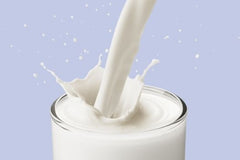 Calcium: Another important mineral needed during pregnancy is calcium to assist with healthy bone and teeth formation. While calcium intake is typically associated with drinking milk and consuming dairy products, whole grains, nuts, and seeds are also good sources of calcium. Examples include almonds, sesame seeds, chia seeds, quinoa, and many different varieties of beans.
Calcium: Another important mineral needed during pregnancy is calcium to assist with healthy bone and teeth formation. While calcium intake is typically associated with drinking milk and consuming dairy products, whole grains, nuts, and seeds are also good sources of calcium. Examples include almonds, sesame seeds, chia seeds, quinoa, and many different varieties of beans.
 Iron: Some women may need to take iron pills at some time during their pregnancy. Iron is needed for healthy red blood cell production along with proper muscle development. This important mineral is also required for many routine body functions. Through diet, iron can be supplemented by including whole grains like wheat, spelt, kamut, bulgar, oats, and quinoa among others.
Iron: Some women may need to take iron pills at some time during their pregnancy. Iron is needed for healthy red blood cell production along with proper muscle development. This important mineral is also required for many routine body functions. Through diet, iron can be supplemented by including whole grains like wheat, spelt, kamut, bulgar, oats, and quinoa among others.
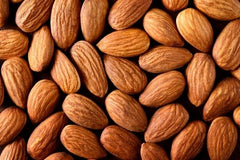 Choline: Choline prevents neural tube defects and assists with the healthy development of brain cells. Among nuts and whole grains, choline can be accessed from oats, whole wheat foods, almonds, walnuts, and pinto beans.
Choline: Choline prevents neural tube defects and assists with the healthy development of brain cells. Among nuts and whole grains, choline can be accessed from oats, whole wheat foods, almonds, walnuts, and pinto beans.
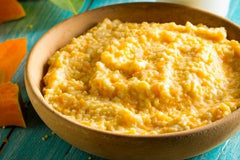 Magnesium: Increased magnesium intake is recommended for pregnant women as this important mineral assists in the development of strong bones and teeth and builds tissue. Grain foods from which excellent supplies of magnesium may be sourced include amaranth, buckwheat, and quinoa while many others like cornmeal, millet, oats, brown rice, wheat barley, and rye yield fair supplies.
Magnesium: Increased magnesium intake is recommended for pregnant women as this important mineral assists in the development of strong bones and teeth and builds tissue. Grain foods from which excellent supplies of magnesium may be sourced include amaranth, buckwheat, and quinoa while many others like cornmeal, millet, oats, brown rice, wheat barley, and rye yield fair supplies.
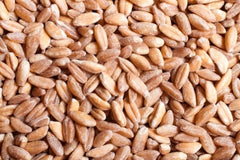 Zinc: Zinc is needed for proper cell growth and is crucial for DNA production. Even though grains may not be the highest sources for yielding zinc supplies, fair amounts can be found in foods like oats, teff, kamut, spelt, white wheat, and triticale.
Zinc: Zinc is needed for proper cell growth and is crucial for DNA production. Even though grains may not be the highest sources for yielding zinc supplies, fair amounts can be found in foods like oats, teff, kamut, spelt, white wheat, and triticale.
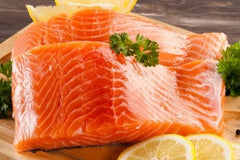 Vitamin D: One of the most important minerals to be supplemented during pregnancy is vitamin D. Even though it cannot be sourced from foods like whole grains, many expectant mothers need to supplement it through foods like fortified milk or others like salmon. Daily recommended amounts also necessitate taking Vitamin D supplements during pregnancy.
Vitamin D: One of the most important minerals to be supplemented during pregnancy is vitamin D. Even though it cannot be sourced from foods like whole grains, many expectant mothers need to supplement it through foods like fortified milk or others like salmon. Daily recommended amounts also necessitate taking Vitamin D supplements during pregnancy.
Disclaimer: We are not recommending any medical solutions, just general nutrition information. Always consult with your doctor with any questions
❤ Try our USDA certified organic products ❤
Related Blogs:
Thanks for reading this Be Still Farms Blog article. To sign up for more news/articles and/or recipes, click here. For more about us, click here. To shop our certified organic products, click here.
Please comment and share and we look forward to serving you in the future!
Comments will be approved before showing up.

January 27, 2025 3 min read
Flaxseed, the tiny yet powerful superfood, is packed with nutrients that can support weight loss. From curbing hunger to stabilizing blood sugar, this guide dives into the science of how flaxseed can help you shed those extra pounds.

December 11, 2024 3 min read
Discover three quick and easy soup recipes featuring organic small red beans. From a classic vegetable soup to a creamy potato blend, these wholesome recipes are perfect for chilly days and busy weeknights. Packed with flavor and nutrition, these soups will warm your heart and soul this winter!

December 06, 2024 3 min read
This vibrant and nutritious Green Lentil Salad combines tender lentils with grilled chicken, fresh vegetables, and a zesty lemon dressing. Packed with protein, fiber, and essential vitamins, it’s the perfect healthy meal for any time of day.
© 2025 Be Still Farms- Real, Fine Organics.
Privacy | Terms | Refund Policy | Organic Certification
